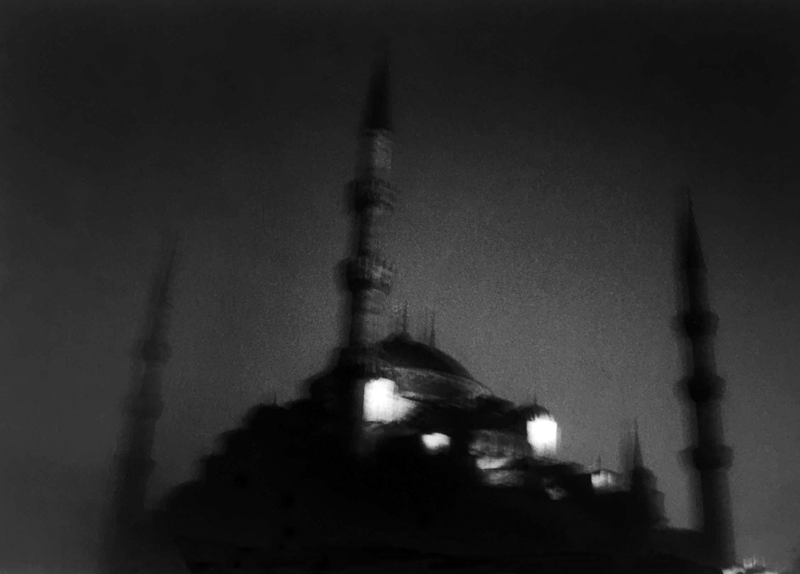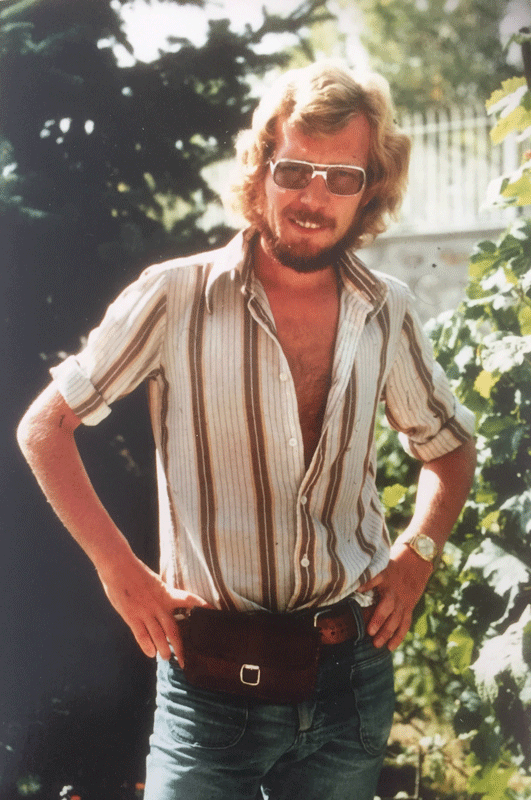Travelling The Hippie Trail
From the mid-1960-ies to the late 1970-ies it became popular among young westerners to travel the overland route from Europe to South and Southeast Asia. It became known as The Hippie Trail. As an alternative way of travelling, one of the key elements was travelling as cheaply as possible, mainly to extend the length of time away from home.
All along the way at major stops there were basic accommodation and eateries that catered to the flocks of young – mostly long haired – people out to taste the adventurous experience of interacting with the local people, as well as sampling the mysticism of the East.
I left Athens in early August of 1976 with a budget of five US dollars a day. This amount was supposed to cover everything from tickets to accommodation, food and other daily expenses.From Ístanbul the journey took us east towards the Kurdish parts of Turkey, to Bingöl and Diyarbakir, where we spent around three weeks before going west again towards the capital Ankara to pick up our visas to Iraq. After a train journey from Ankara to Baghdad via a mishap in Syria, we continued overland by car to Tehran, and from there we travelled on to Afghanistan – then a haven for backpackers preoccupied with smoking pot. Backpackers in those days called themselves travellers, opposed to other tourists which we called tourists and which we despised.
Standards route once entering Afghanistan was Herat, Kandahar, Kabul, and with side trips north to either Mazar-e-Sharif or Bamyan to see the famous Buddha statues. Afghanistan in those days was all peace and quiet. In Kabul everybody stayed in cheap dumps in and around Chicken Street, which in a way could be compared to Khao San Road in Bangkok these days.
After travelling through the Khyber Pass, most people hurried through Pakistan towards India, some making a detour from Amritsar to Kashmir. Kashmir in those days was also all peace and quiet, very quiet indeed. We stayed in a houseboat on Dal Lake, which was more than peace and quiet: it was paradise on earth.
Almost every day I filled my diary with facts, thoughts and notes, and below I am sharing some of them with you:
August 1976: Today (August 20) we arrived the Turkish city of Ístanbul after a three-day long journey hitch hiking from the Greek island of Skyros. The last leg took us from the Turkish border town of Ipsala, the two of us sharing front seat of a lorry with a boy of school age – possibly the driver’s young son. The friendly driver bought us breakfast and claimed he was Syrian and that he was continuing to his home country. As we drove through one village after another, the background was distinctly different from that on the Greek side. Women in their typical headscarves were going about their daily shopping and young boys were standing on the roadside begging for cigarettes.
One of the days we also paid a visit to the Iraqi Consulate in Ístanbul to apply for a visa. It would take three weeks, we were told, but the good story was that we could pick up the visa in the capital Ankara and there was no need to leave the passport behind. The train journey to Bagdad will take three days though – on a train called the Orient Express.
The Pudding Shop in Ístanbul is the meeting place of all travellers. (The Pudding Shop is still there today). People going east wants to talk to people going west to learn about their experiences, and vice versa. Last night the place was full and we had to share a table with two Turks. One of them was very talkative, but with no other language skills than Turkish. His friend was the quiet type, but was able to translate his gibberish into French, of which we understood very little.
The Sultan Ahmed area around the Blue Mosque in Ístanbul is where those with Volkswagen buses and Ford Transits park their vehicles. It’s hard to tell whether they are going east or west, but most of them are loaded with spares tyres and extra petrol tanks. It is hard to imagine that some of the most dilapidated vehicles actually will be able to make the trip, and back. Beyond India – or Bangladesh – the roads stops unless you are willing to put your vehicle on a boat to Singapore or Australia.
We are staying in the Sultan Ahmet area, named after the Mosque, also known as the Blue Mosque. There is obviously poverty in the area, but life somehow looks relaxed. Wondering through the cobblestoned and narrow streets below the mosque, kids smile and are eager to be photographed. So are the women. The buildings on the slopes towards the sea are overwhelmingly wooden houses, but not two houses look the same.
Besides roaming the streets to photograph, do a little sightseeing, and drinking tea in the Pudding Shop, the days go by reading Robert M. Pirsig’s “Zen and the art of motorcycle maintenance.” An appropriate reading when all the people we meet returning from the East boast about the peace and mysticism they have experienced.
An appropriate quote: “I disagree with them about cycle maintenance, but not because I am out of sympathy with their feelings about technology. I just think that their flight from and hatred of technology is self-defeating. The Buddha, the Godhead, resides quite as comfortably in the circuits of a digital computer or the gears of cycle transmission as it does at the top of a mountain or in the petals of a flower. To think otherwise is to demean the Buddha, which is to demean oneself.”
The marvellous super class mansion we are staying at sets us back 20 lira (about 1.25 dollars) a night, but then it comes with a stinky common toilet and bed companions (flees). A good meal at the Pudding Shop – soup, spaghetti, bread and a pint of beer – enough to fill me up is 12.50 lira, a cup of tea one lira. But most expensive of all: toilet papers at 6.50 a roll. Luckily, the runs only lasted for a couple of days, otherwise the five-dollar a day budget would easily be blown.
I started on the journey all aloneAlone had I resolved to reach my goal
But as I went along people came man after man
And the lonely march became a caravan
Urdu poet Majrooh


